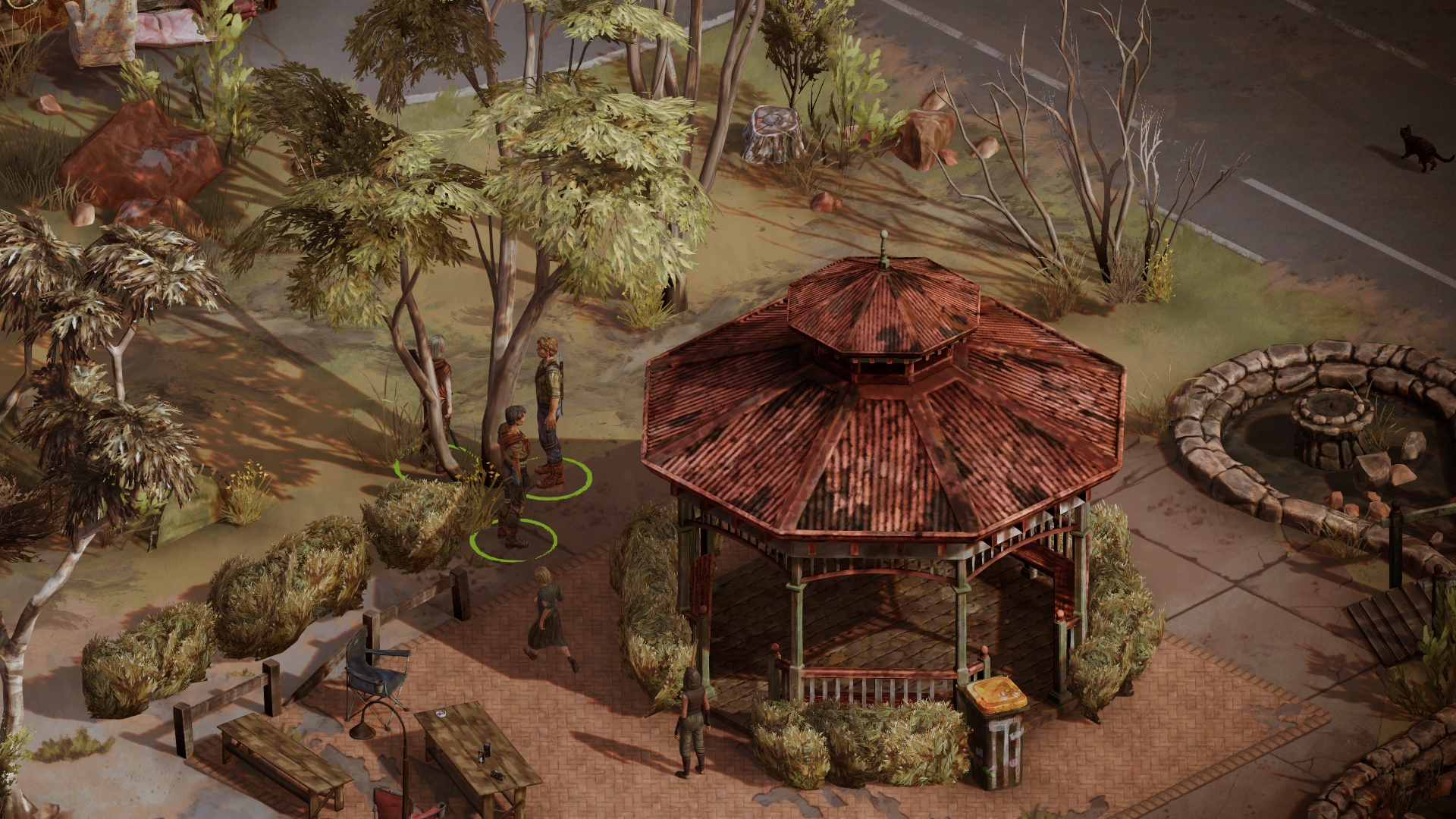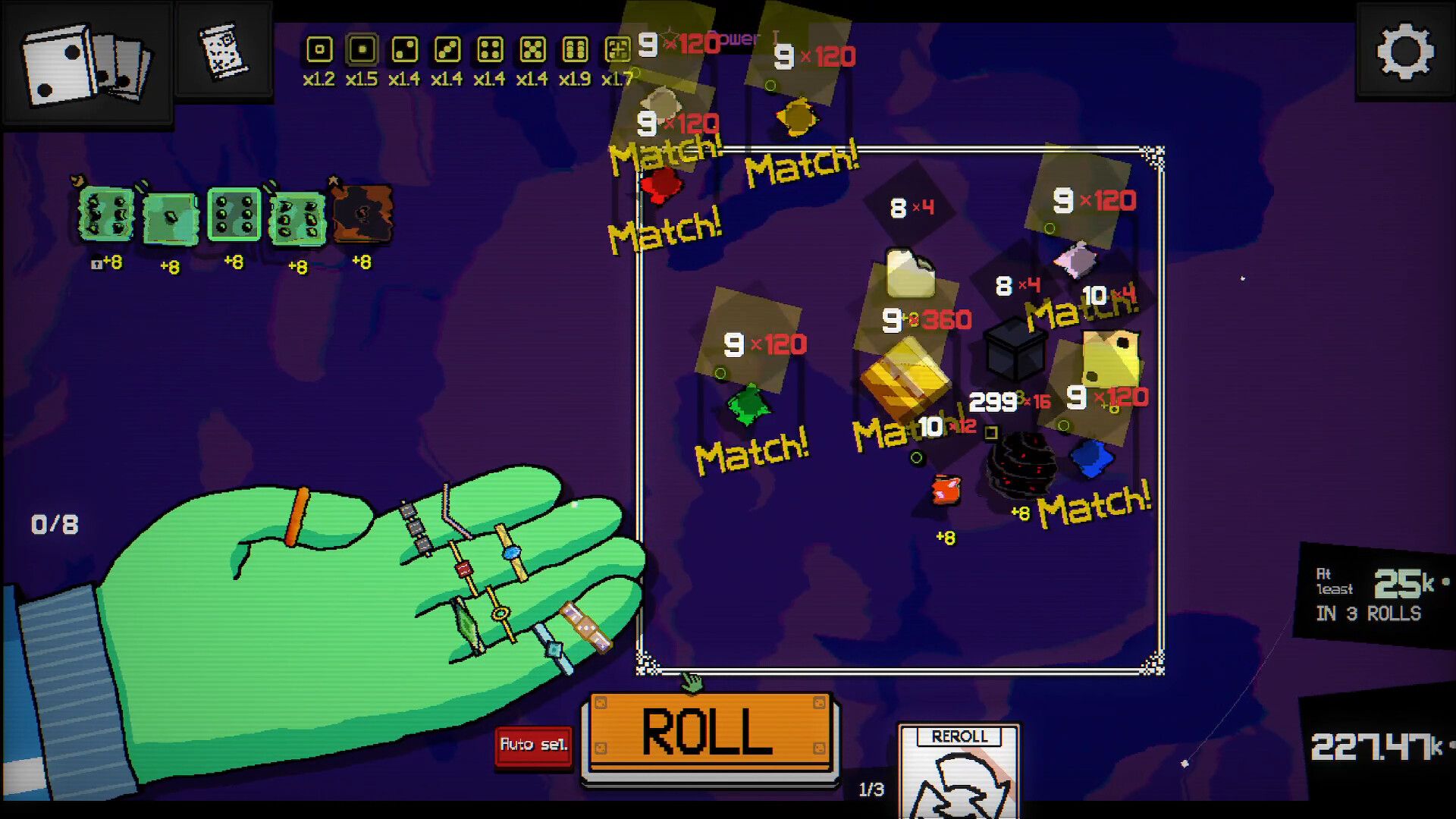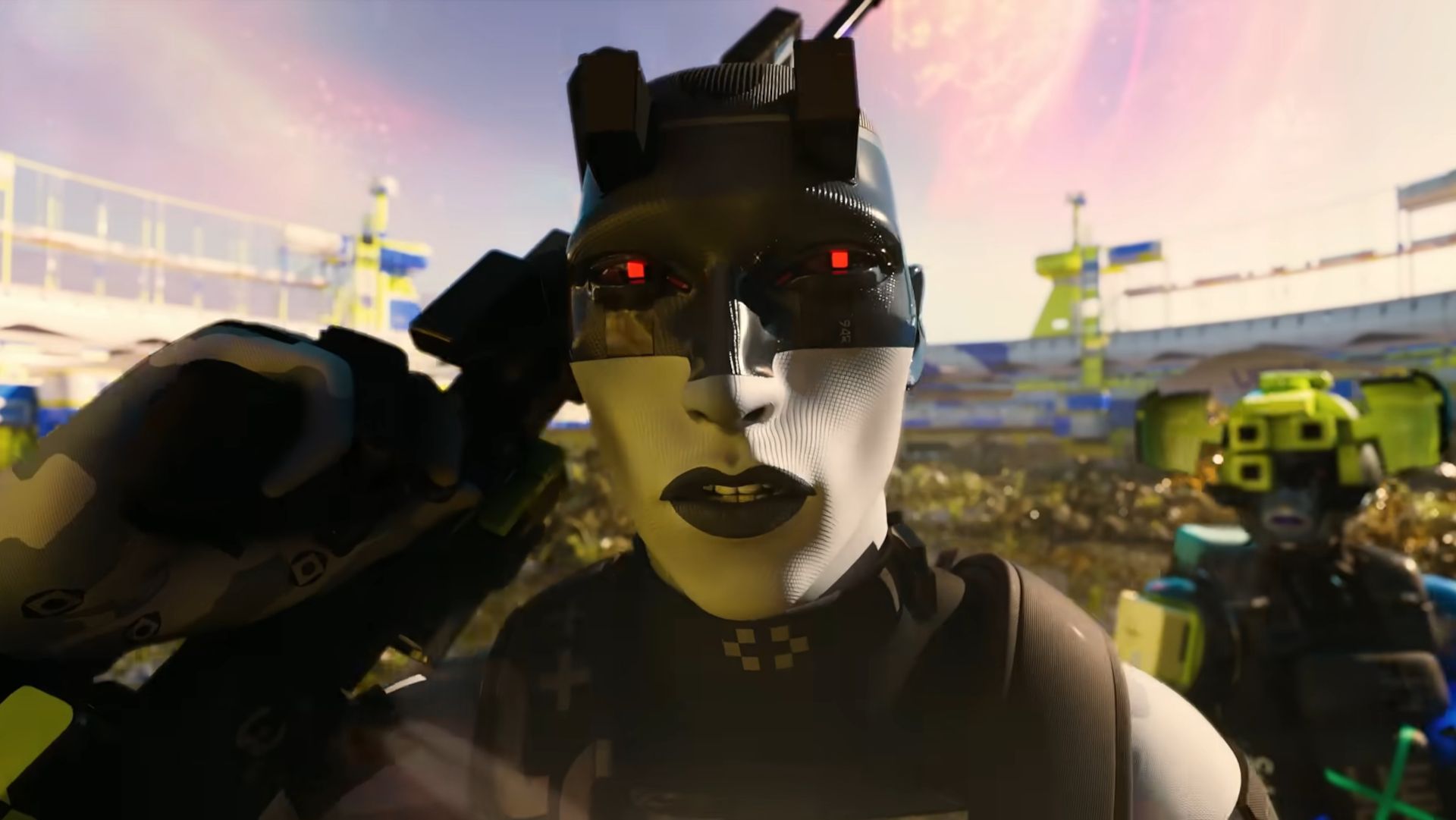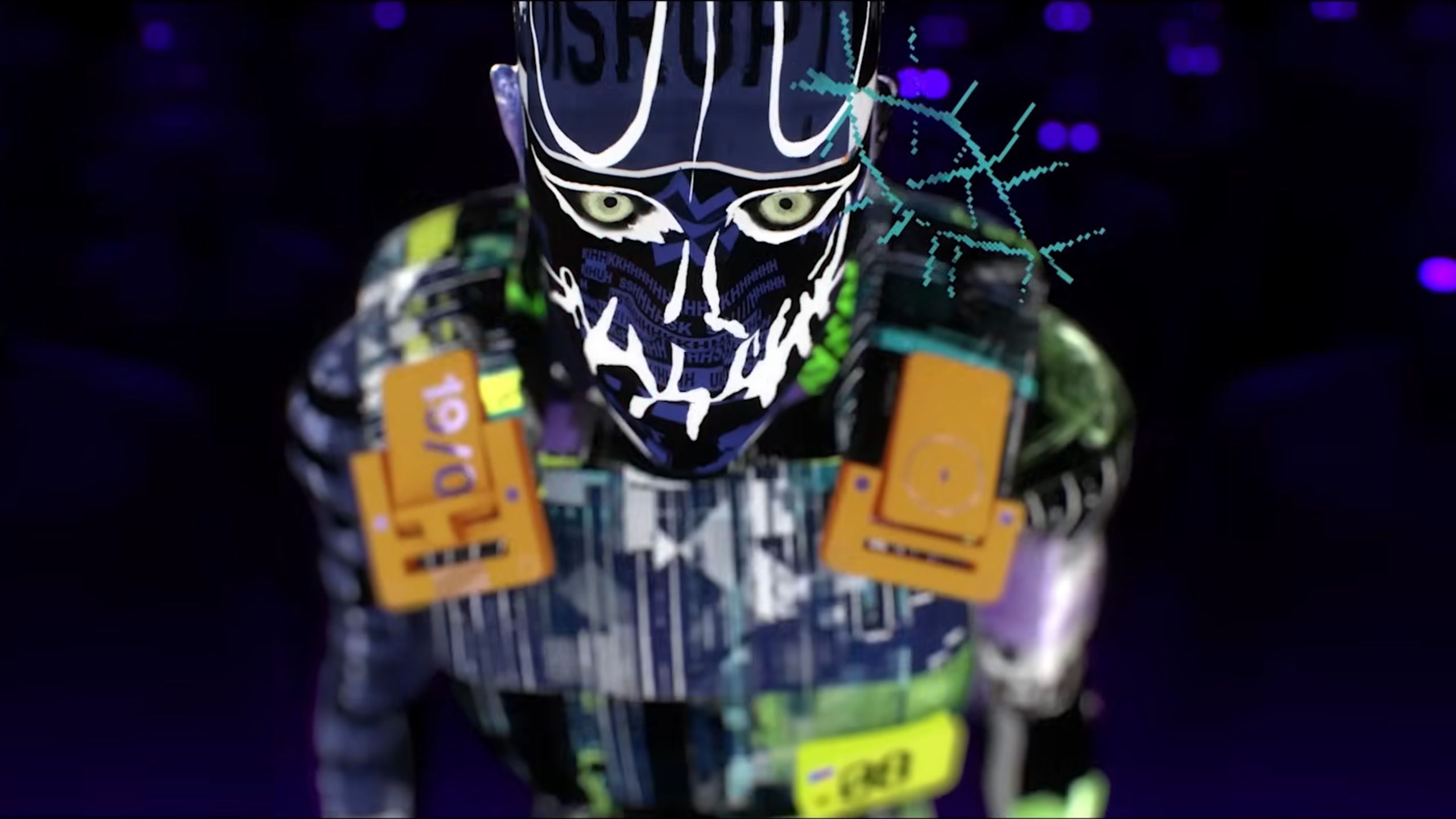A version of this story was originally published in PC Gamer issue 385, 2023.
Here’s how Australian Broken Roads is: instead of magic potions, you drink beer. Game director Craig Ritchie casually mentions this when listing consumables, alongside bandages and first aid kits. “You can’t get magic potions in our game so we have multiple sources of beer,” he says. “The beers have different abilities.”
Broken Roads is so Australian one of its character archetypes is summed up as someone who “wouldn’t even blink in a shit storm.” Funny thing is, this post-apocalyptic homage to classic RPGs like Fallout wasn’t always set in Australia. It wasn’t even always an RPG.
When Ritchie first told a friend about his videogame idea in January of 2019, it was a tactics game, “a road trip with tactical battles along the way.” The focus was on turn-based combat, and the setting was a “generic post-apoc place.”
That friend was Jethro Naude, who became co-founder of Drop Bear Bytes with Ritchie, and Broken Roads became their first game. But not without changes along the way. Within a month they realised it made sense for an Australian studio to set its Mad Max-esque game in Australia, and they wanted it to be about more than just combat. They wanted to deepen the characters, expand the story, make it more like the game they both consider their favourite: Baldur’s Gate 2. “We made a decision, I think in early February,” Ritchie says. “This is going to be a narrative-driven RPG like the greats of the genre that we love.”
As their ambition expanded, so did the studio, with new staff acquired by diverse means. Composer and audio lead Tim Sunderland was found via Reddit, while narrative director Leanne Taylor-Giles came as a recommendation from creative lead Colin McComb, the two having worked together on Torment: Tides of Numenera.
Slang gang
The larger, more spread-out team was useful when it came to ensuring the dialogue was accurate. Broken Roads is full of evocative Australian slang. Children are called “ankle-biter” or “sprog”, an overconfident merc’s “a legend in his own lunchbox”, and insults you’ll hear include “derro” and “bogan”. My favourite phrase in Broken Roads is “Technicolour yawn,” a poetic way to describe vomit.
You get this item, you take it to the right person, and a new beer becomes available in the world.
Craig Ritchie, game director
What counts as Australian slang is a divisive topic among Australians, with residents of different states baffled to learn their neighbours use different words. “Even Leanne and I disagree on some things and we’re both from Queensland,” Sunderland says. Because Australian culture is often depicted inaccurately in fiction, especially the accents, people are protective of what counts as “real” slang. Whether you call a slice of potato that’s been battered and deep-fried a potato cake, scallop, or fritter can start fights.
“It’s interesting,” says Taylor-Giles, “because my husband grew up in Victoria and I grew up in Queensland. I’ll turn to him and I’ll say, ‘Have you ever heard this phrase?’ He’s like, ‘No, what does it mean?’ Then I have to think and go, ‘I don’t actually know.’ Then it’s this whole etymological journey to figure out.” She found a source for accurate dialogue equally close to home: older relatives. “I just call my grandma or my uncle and listen to them chat for a while. ‘Yeah, those are some good phrases,’ and I put them in the game.”
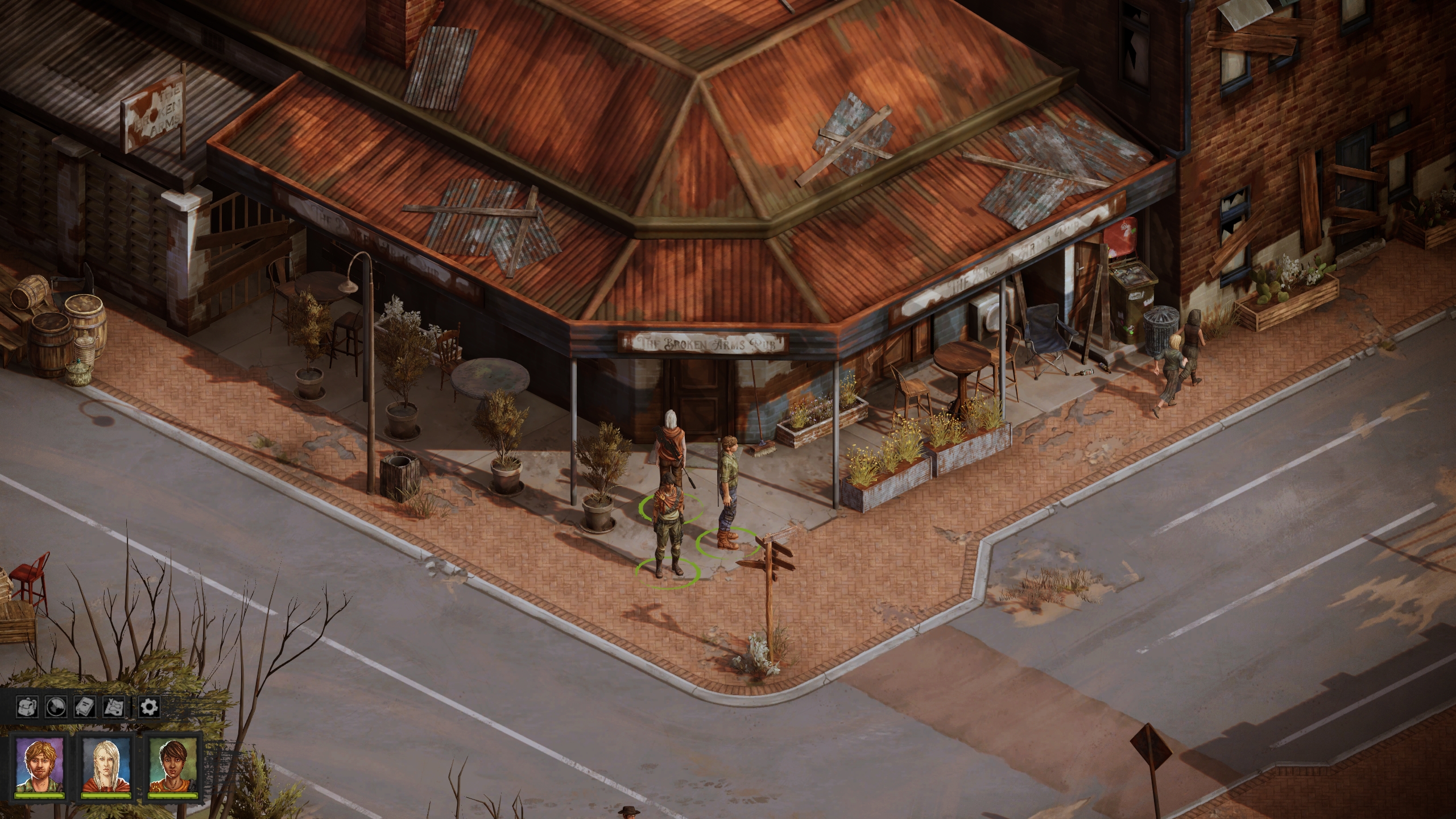
Further research meant travelling around Western Australia, the state Broken Roads is set in, and in particular its wheatbelt region. They took thousands of photos and audio recordings of places like the Super Pit, which used to be Australia’s biggest open-cut gold mine. It’s a hole 600 metres deep that makes a sound Taylor-Giles calls “a drone like the background of the universe.”
It was also important to research the beer, I’m assured. “It’s all Craig,” Sunderland says, “he loves his craft beer. We were in Kalgoorlie, which is in the middle of Western Australia, and he found a craft beer restaurant. What? How?”
“What I’ve done is look at real flowers, plants, that kind of thing that either are or can be used in craft beers that are the fauna of the specific area of the wheat belt of WA,” Ritchie explains. “You can get like banksia and desert pea, I can’t remember them all right now. You get this item, you take it to the right person, and a new beer becomes available in the world.”
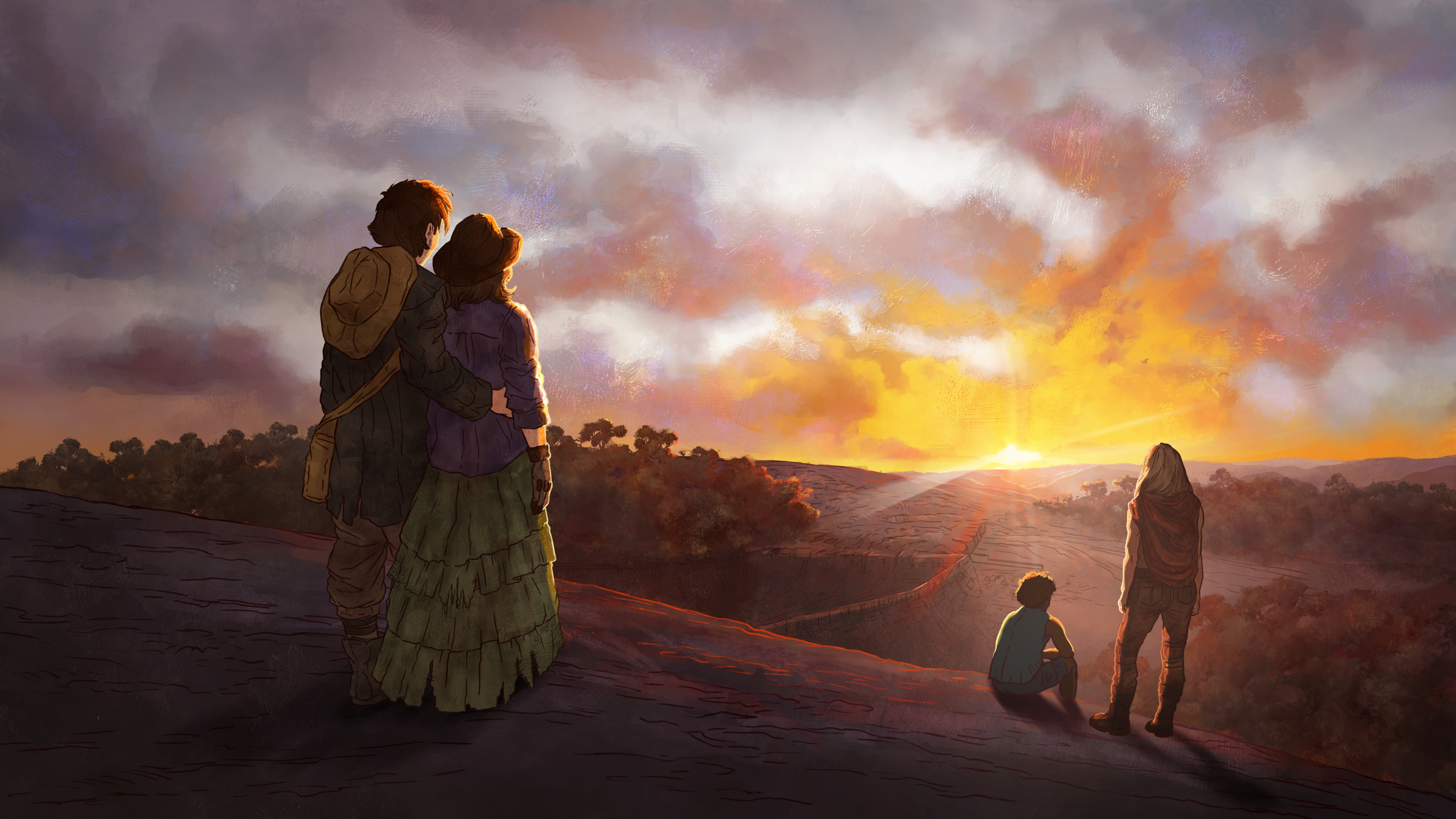
Another location visited was Wave Rock—a hill naturally formed into the shape of a breaking wave the team compares to Erana’s Peace, the peaceful haven in Quest for Glory: So You Want to Be a Hero. Sunderland’s quite pleased he captured authentic audio to accompany it. “When you’re in Wave Rock [in the game] you’re hearing Wave Rock exactly where you are,” he says. “Not just Western Australia, but exactly where you’re standing.”
We started off with the same art team that did the Shadowrun Returns series of RPGs.
Craig Ritchie, game director
Sunderland also composed the score, balancing gentle piano with instruments he figured could be constructed in a wasteland, making them out of scrap and broken guitars. He wrote from the perspective of “a musician that lives in a tin shed that’s had a bit too much sunstroke and has collected all these musical instruments and synthesisers and whatnot over the years. They’re just experimenting in this little shed.”
They sound like the kind of raggle-taggle instruments only a wasteland scavenger or Tom Waits could love, and demanded to be played a certain way. “Playing that cigar box guitar is awful, because I’ve used nails on it as the frets, and they’re sharp and they’re rusty and I probably got tetanus. It really changes the way that you play an instrument because you think it’s just a guitar, but then you pick it up and you go, ‘This does not feel like a guitar. This feels like a weapon.'”
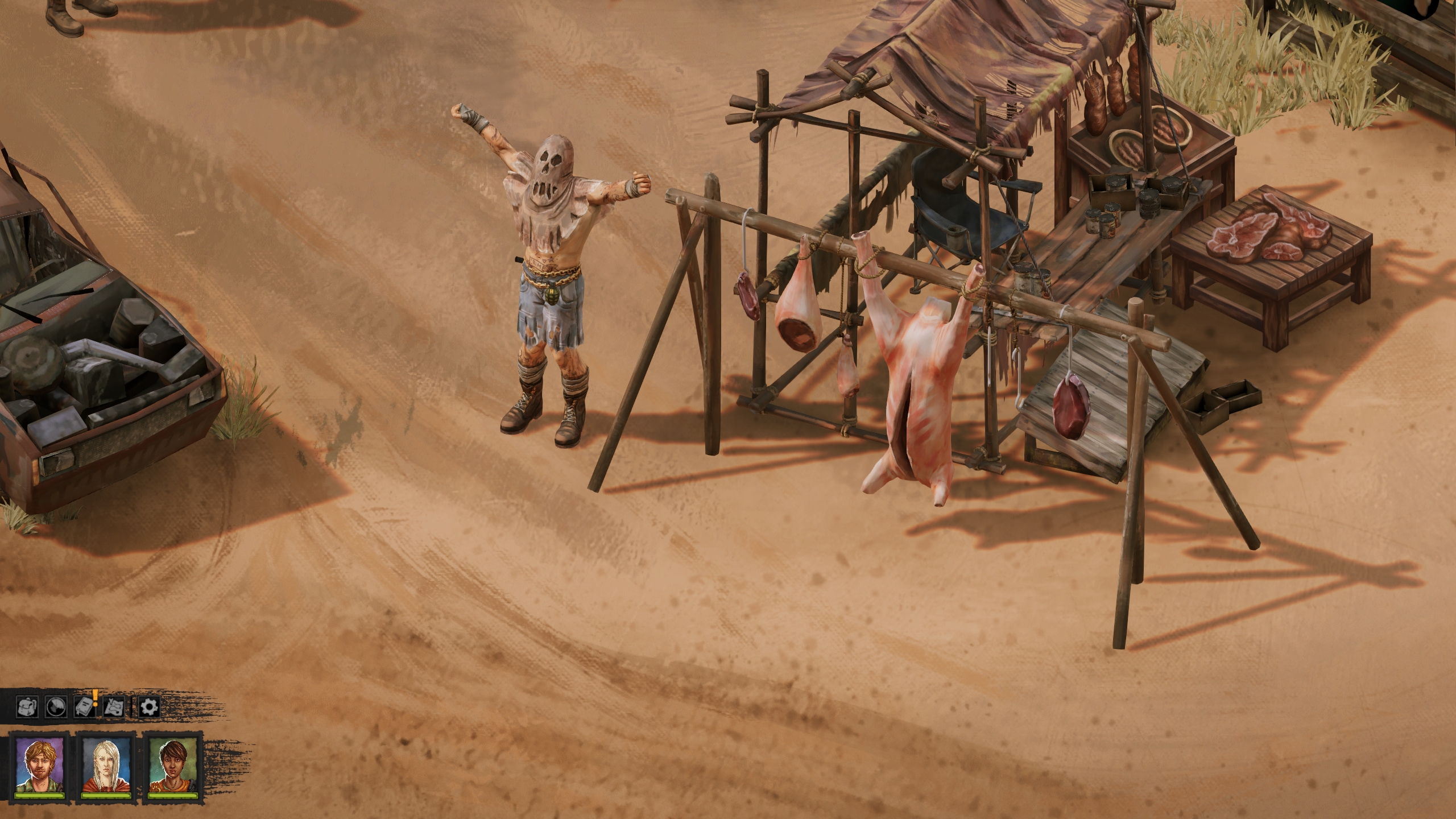
The final layer of authenticity came via reference photos, from which building facades were faithfully rendered (minus logos, for legal reasons). Broken Roads doesn’t look photorealistic, however, with a painterly art style and visible brushstrokes.
“I want players to feel like they’re playing in concept art,” Ritchie says. “I’ve often thought concept art looked better than what actually made it in the game. We started off with the same art team that did the Shadowrun Returns series of RPGs. They were working with the art director to get the style down, however that was all 2D, hand-drawn sprites for 3D characters walking around on flat ground. As we’ve got the publisher funding and more investments on, we’ve managed to increase the budget and now we’ve recreated the whole world in 3D.”
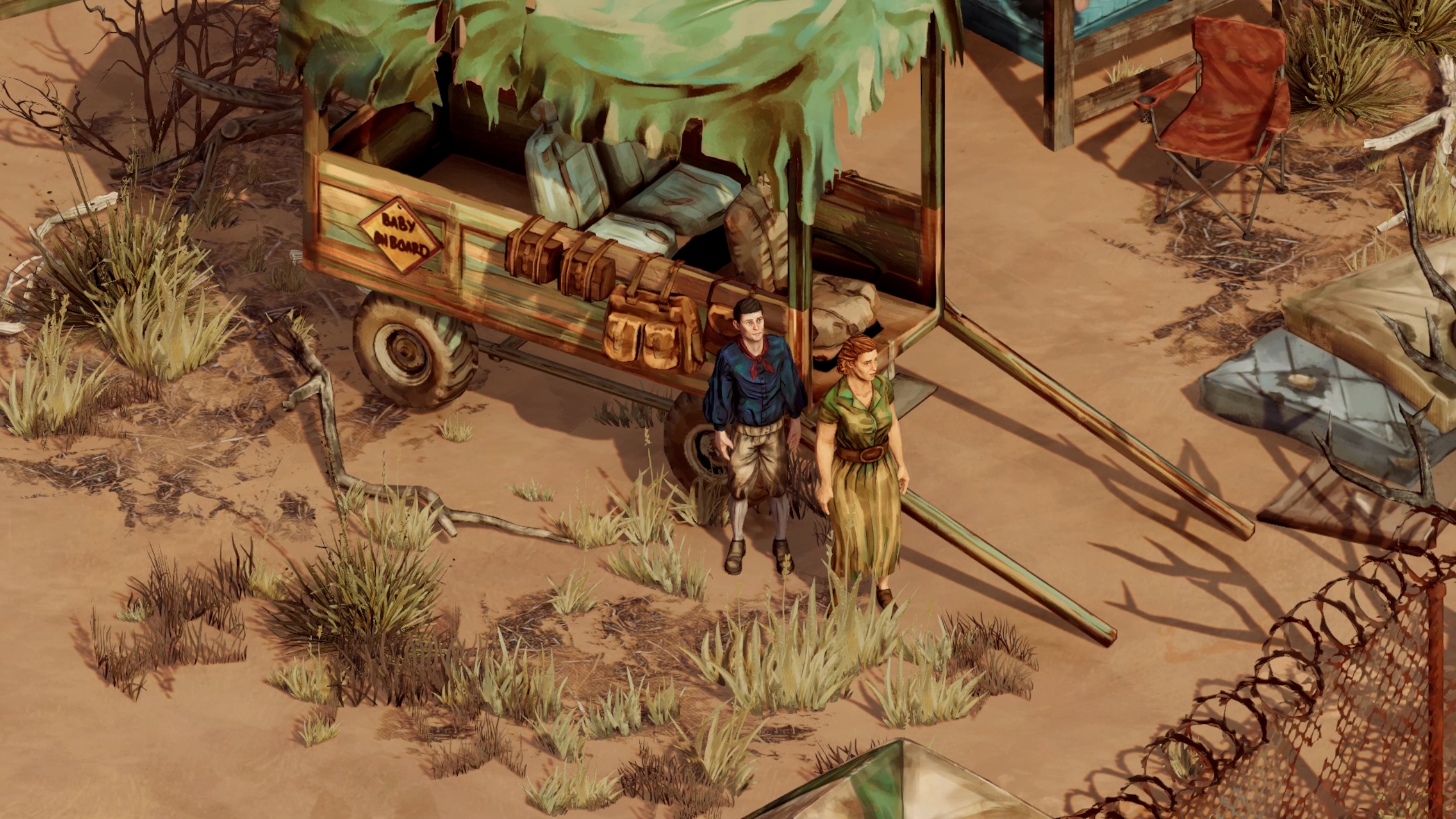
State of origin
Broken Roads has multiple playable prologues, one for each character archetype, like Dragon Age: Origins. As a Hired Gun my origin involves joining a party of scouts for a job escorting an engineer to Kokeby Waystation—a train depot converted to a market—where we’ll rendezvous with another traveller, then take both to the nearest town. Along the way I pick up sidequests like dealing with a merc hired to protect Kokeby who has become a bully they can’t get rid of. Backed up by two armed scouts I try threatening him, but he doesn’t take kindly to that. It ends in a shootout.
Despite modern touches like the moral compass that tracks your decisions and measures your philosophical leaning across four axes (humanist, utilitarian, machiavellian, and nihilist), it feels like a classic CRPG rather than a radical reinvention of the genre. More Bogan’s Gate than Drongo Elysium.
Still, seeing traits activated by reaching certain scores in the moral compass—like Anomic Aggression, a reward for nihilism that improves your stats at the cost of allies finding you disconcerting—it’s hard not to think of Disco Elysium, even though I first saw Broken Roads demoed at PAX Australia in October, 2019, days before Disco Elysium came out. “We are unashamedly copying Fallout 2, Planescape: Torment, Pillars 2, Baldur’s Gate,” Ritchie says. “Those are our, ‘Yep, we took from those.’ Disco Elysium, we even had our art style defined and people have said, ‘Look, you’re copying the art!’ I promise you, we were nine months in before we even saw that game.”
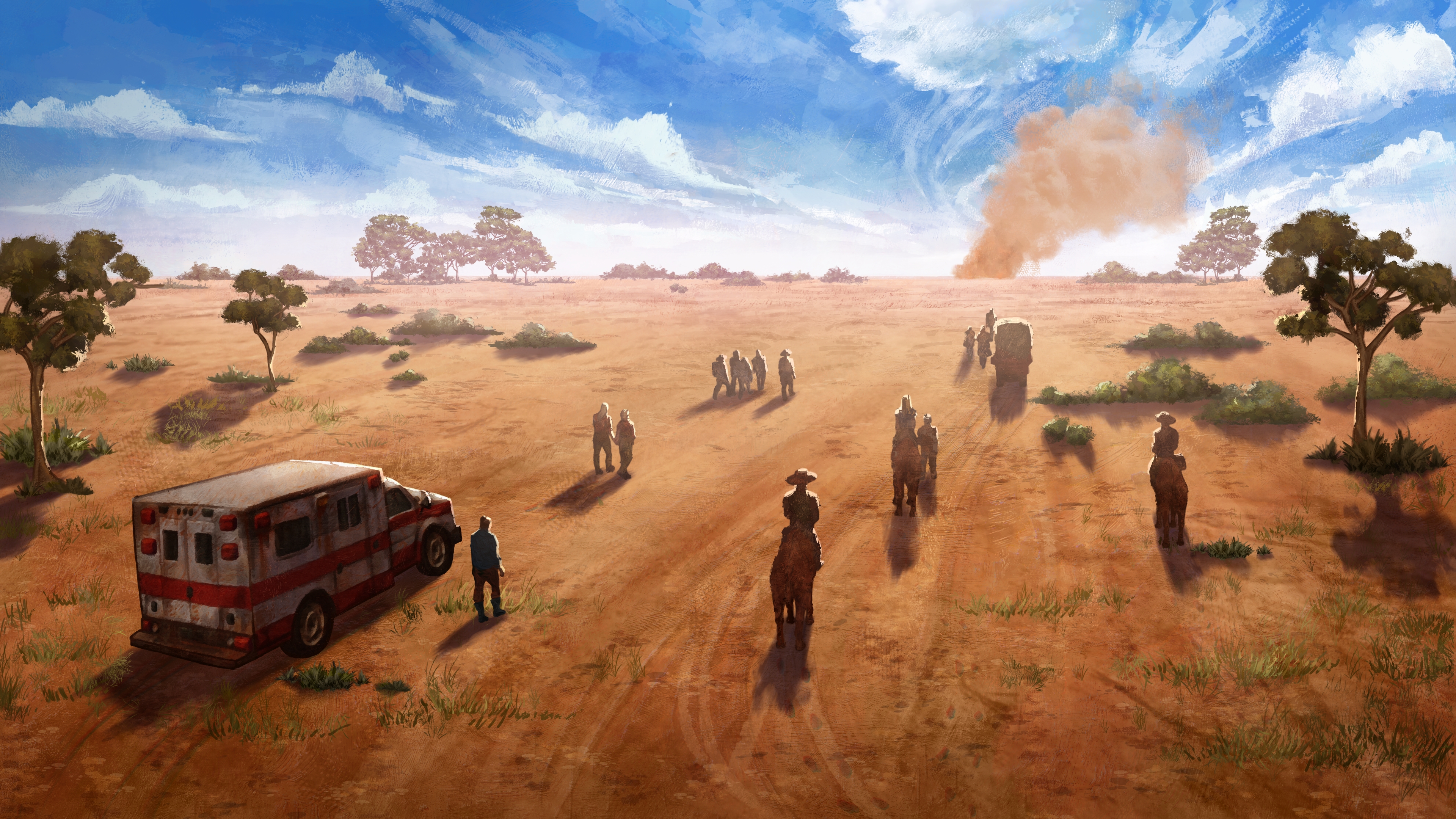
I’m pleased to hear the team reference Sierra’s classic adventure RPGs in the Quest for Glory series too. “Quest for Glory was a direct influence on this game as well,” Ritchie says, “right down to the design of one of the guilds in the major town. We copied some of the stuff from the Adventurers Guild in the original Quest for Glory, 100%. That game, I played so much of that. I just loved the freedom, and I loved the RPG combined with the adventure game.”
We try to come up with as many solutions as possible.
Leanne Taylor-Giles, narrative director
Disco Elysium did end up having some influence on Broken Roads, though. Disco’s Thought Cabinet, which let players internalise specific memories and ideas in return for changes to their stats and other effects, was so similar to a Broken Roads mechanic where players learn things from books that it was pulled and is being rethought. “We designed something so similar we were like, if we put this in people will just think we’re ripping it off completely,” Ritchie says.
Second, Disco Elysium being successful despite its lack of combat pushed them to include additional non-violent ways of solving problems. “We’d always planned to have the mix,” Ritchie says, “but I’d say it’s swung the needle a bit more into having more of those.”
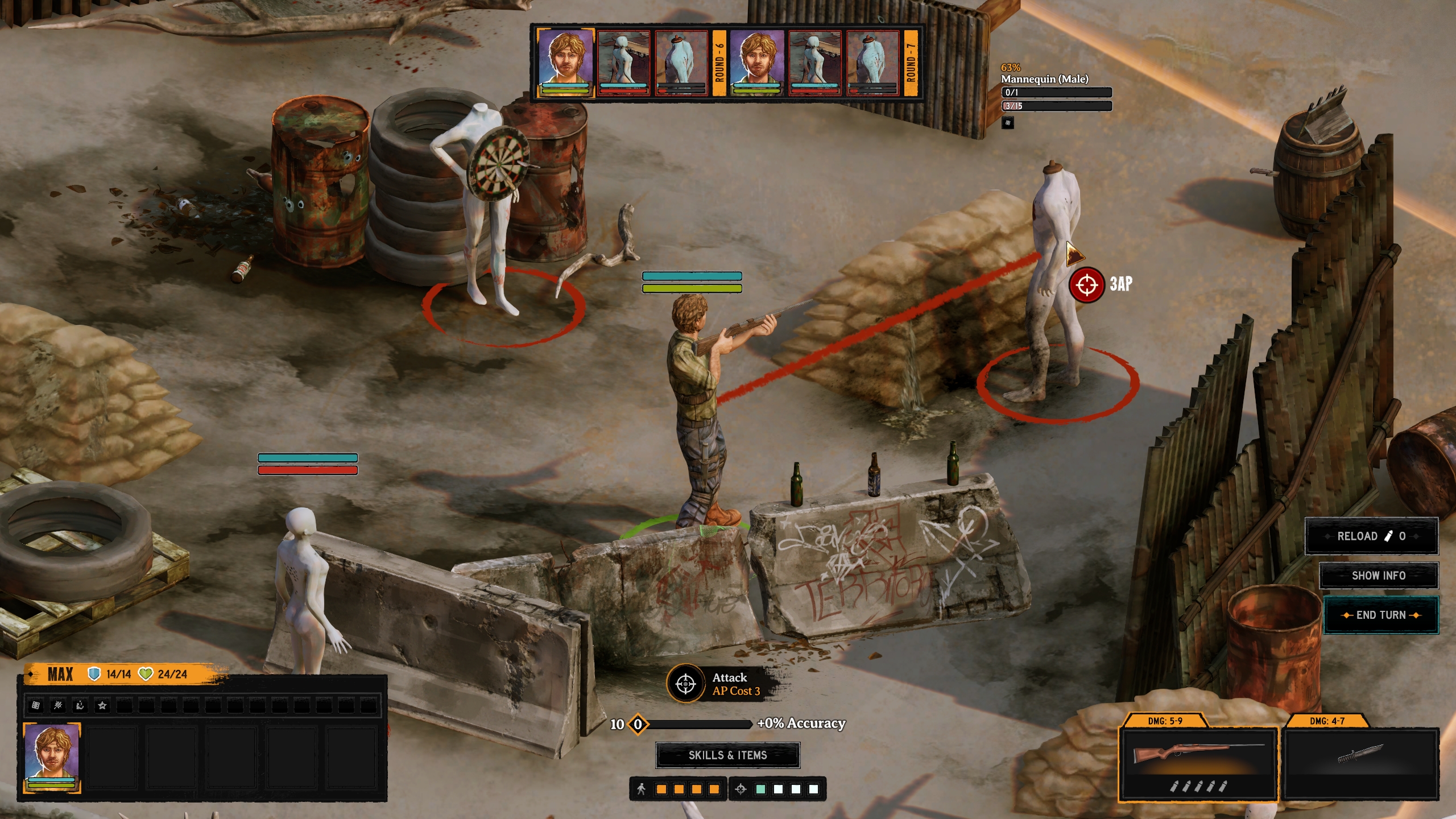
When you’re faced with a problem, Taylor-Giles says, “You can solve it with violence, you can solve it with dialogue, or if you are over here, and you’re like, ‘I wonder if I take this item the entire way across the world, if that’s gonna have an impact?’ It does.”
“And sometimes you can just bribe people as well,” adds Ritchie. “If you’ve got enough money.”
Philosophers with clubs
Replaying the demo as a less utilitarian and more humanist character I do exactly that, paying Kokeby’s thuggish merc to leave town instead of killing him. There were other dialogue options I couldn’t choose, shown in struck-through text—something you’ll be able to toggle in the finished game if you’d rather not know what you’re being locked out of. I’d definitely prefer to have them hidden. Seeing my character isn’t enough of a humanist to be able to offer a sick man some water makes me want to game the system so I’m not locked out of options like that in the future, rather than just roleplaying.
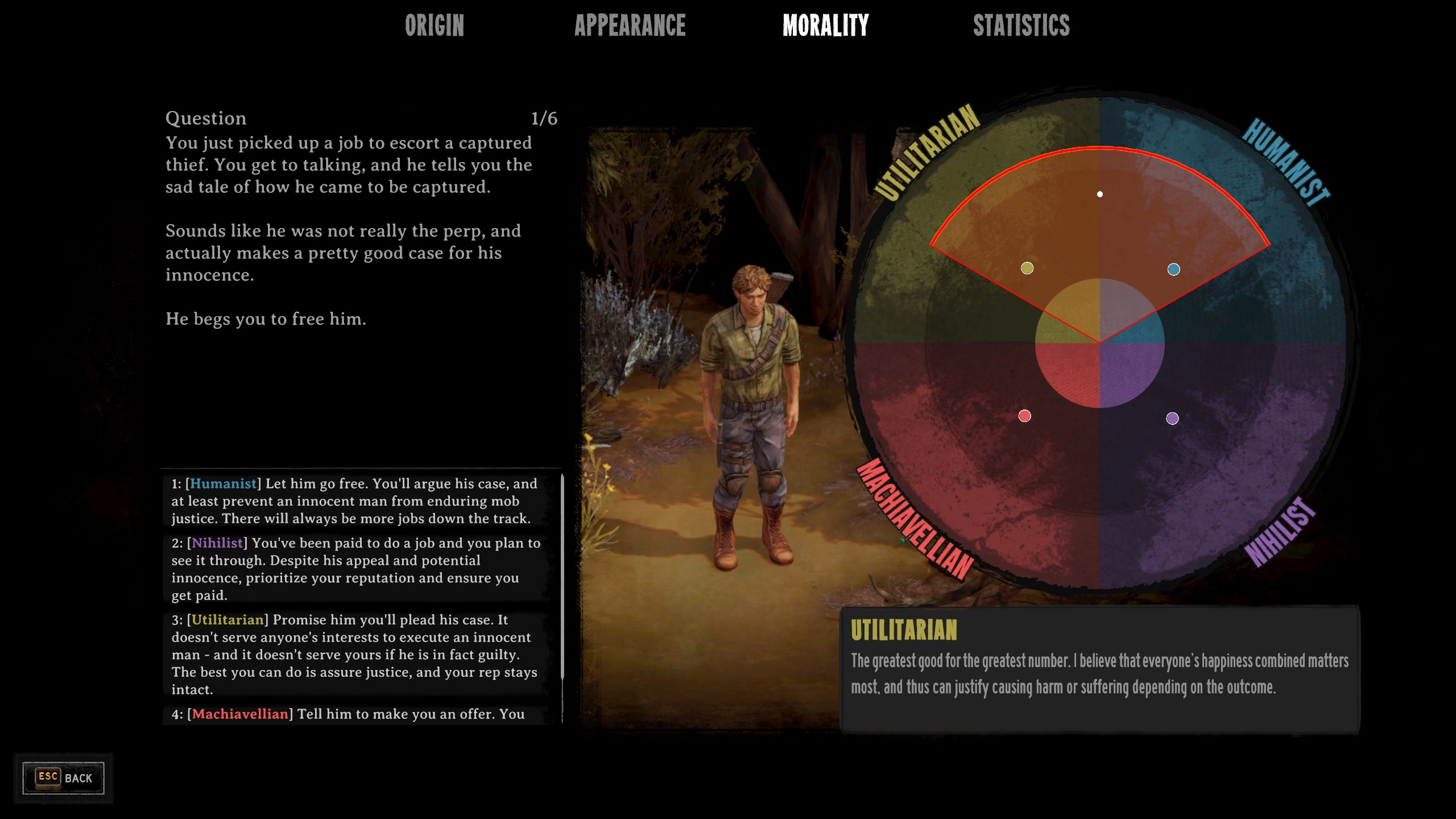
Taylor-Giles points out that base-level options are always available, no matter which philosophical quadrants your spread covers, as well as ones in a “moral history” keeping track of what you used to believe. “If you start off as a humanist and you’ve somehow managed to do a full 180 and go round to machiavellian, but then you want to take on a humanist option and it’s within your moral memory you can still do that because of the person that you used to be.”
“It’s not so much locking as limiting,” says Ritchie. “Not trying to put a PR spin on it, but it adjusts to your playstyle, it evolves with your character.”
Taylor-Giles mentions that while some ways of solving problems will be open to characters based on which moral quadrants they’re in, others will be based on their origin or previous actions, “so it feels like it’s a tapestry that you’re taking part in. We try to come up with as many solutions as possible.”
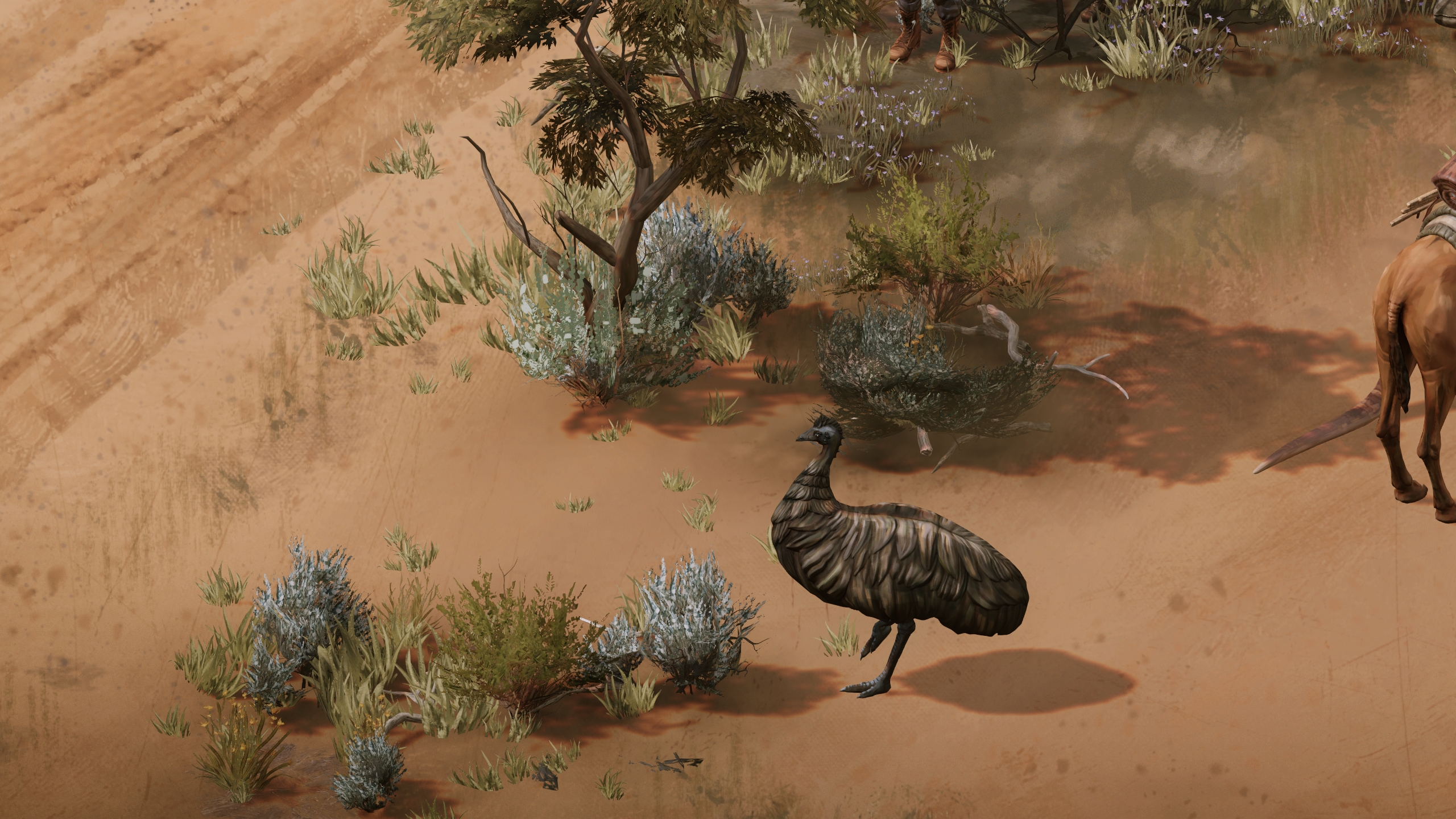
Though they added enough peaceful solutions that a full pacifist playthrough will be possible, if difficult, they never considered removing combat altogether. Far as Broken Roads has travelled from its turn-based tactics origin, that remains non-negotiable. As Ritchie explains, “Publishers actually contacted us and said, ‘Hey, if you could remove combat from the game, then we’ll publish [it], look at Disco Elysium.’ They basically wanted us to change it completely. We were like, no, we are a traditional RPG. We are gonna have combat.”
While he considers comparisons to Disco Elysium a compliment, he’s resigned that Broken Roads will “probably never get out of its shadow.” Which is frankly an issue every CRPG faces now. “We’re not going to spend our whole next six months’ marketing campaign telling people ‘No, no, we didn’t copy Disco Elysium,'” he says. “We’ll let people on Reddit say what they want.”

